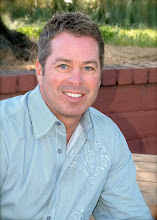 My dad sent me an article from the Barna Research Group this week. The article caught my attention because at New Vintage Church we strive to create environments where people can grow and mature. That is great but how do we know what a mature Christians looks like? We also believe that without a clear target or a clear understanding of what a win looks like, we will define our own win. It's interesting how pastors aren't even clear about the target. Read the article and let me know what you think.
My dad sent me an article from the Barna Research Group this week. The article caught my attention because at New Vintage Church we strive to create environments where people can grow and mature. That is great but how do we know what a mature Christians looks like? We also believe that without a clear target or a clear understanding of what a win looks like, we will define our own win. It's interesting how pastors aren't even clear about the target. Read the article and let me know what you think. Though many of Christians would like to grow and develop on their path of faith, most are unsure what a "healthy, spiritually mature follower of Jesus" looks like, let alone how to become one.
A new Barna survey revealed on Monday that half of churchgoers cannot describe how their church defines a "healthy, spiritually mature follower of Jesus."
Even among born again Christians – a smaller subset group whose members say they have made a personal commitment to Jesus Christ as their savior and confessed their sin – a significant portion was unable to say how their church defines spiritual maturity. Two out of five born again Christians could not answer the open-ended survey question.
When Christians did offer their personal description of spiritual maturity, the views were mostly one-dimensional, according to the survey.
Some defined it as having a relationship with Jesus (21 percent), following rules and being obedient (15 percent), living a moral lifestyle (14 percent), possessing concern about others (13 percent), being involved in spiritual disciplines (13 percent), applying the Bible (12 percent), being spiritual or having belief (8 percent), sharing their faith with others (6 percent), and being involved in church activities (5 percent).
About one-fifth of self-described Christians did not offer an opinion.
In comparison, born again Christians had similar responses to self-described Christians except they were more likely to see having a relationship with Jesus (30 percent) as a sign of spiritual maturity.
The survey also suggested that most pastors struggle with defining spiritual maturity.
Surveyed pastors offered a range of ways to measure someone’s spiritual maturity, including the practice of spiritual disciplines (19 percent), involvement in church activities (15 percent), witnessing to others (15 percent), having a relationship with Jesus (14 percent), having concern for others (14 percent), applying the Bible to life (12 percent), being willing to grow spiritually (12 percent), and having knowledge of Scripture (9 percent).
Most of the pastors who participated in the survey were also vague in offering biblical passages that address spiritual maturity.
About one-third of pastors gave the generic response that the “the whole Bible” described spiritual maturity. Pastors were asked to identify the most important portions of the Bible that gave a definition of spiritual maturity.
Other pastors gave general answers such as “the gospels” (17 percent), the New Testament (15 percent), and Paul’s letters (10 percent). Overall, about three-quarters of pastors gave some type of generic answer. Another one out of five pastors gave a “semi-generic” response, such as “Romans” or the “life of Christ.”
Only one-fifth of pastors offered specific passages that included Galatians 5, John 3:16, Ephesians 4, Matthew 28, and Romans 12:1-2. Just two percent of pastors specifically identified the Galatians 5 passage that describes the “fruits of the Spirit,” which includes love, joy, peace, patience, kindness, gentleness, and self-control.
Seven percent of pastor respondents gave “theme specific” responses, most commonly the Sermon on the Mount, the Great Commission, the Great Commandment, and the Beatitudes.
David Kinnaman, president of the research firm Barna Group and who directed the project, partly blamed the faith community not being able to offer a “robust” definition of its spiritual goals for contributing to the spiritual problems in America. Kinnaman calls on faith leaders, in light of the study, to develop new spiritual metrics to measure spiritual growth.
“As people begin to realize that the concepts and practices of spiritual maturity have been underdeveloped, the Christian community is likely to enter a time of renewed emphasis on discipleship, soul care, the tensions of truth and grace, the so-called ‘fruits’ of the spiritual life, and the practices of spiritual disciplines,” Kinnaman said.
The study is based on nationwide telephone interviews with 1,005 adults, age 18 and older in August 2008. The survey among pastors included 611 clergy.




